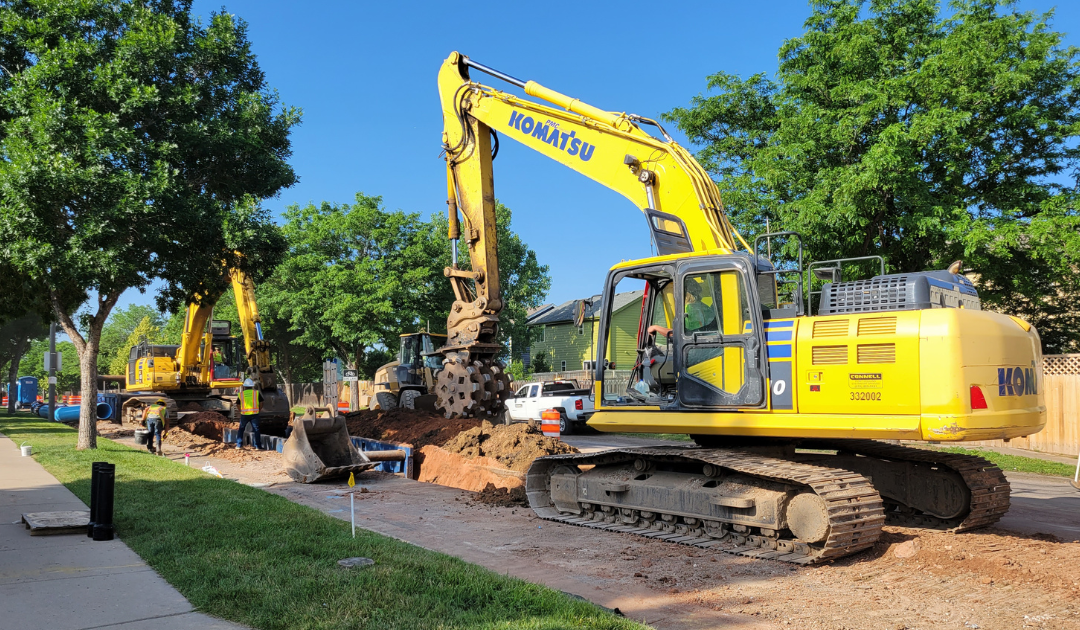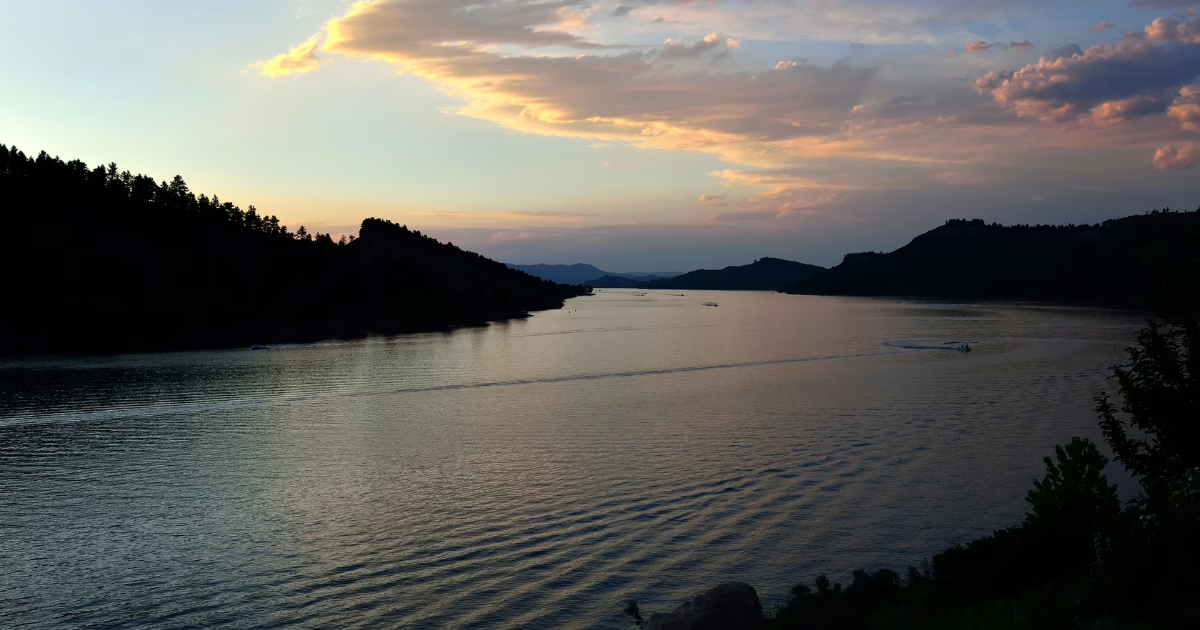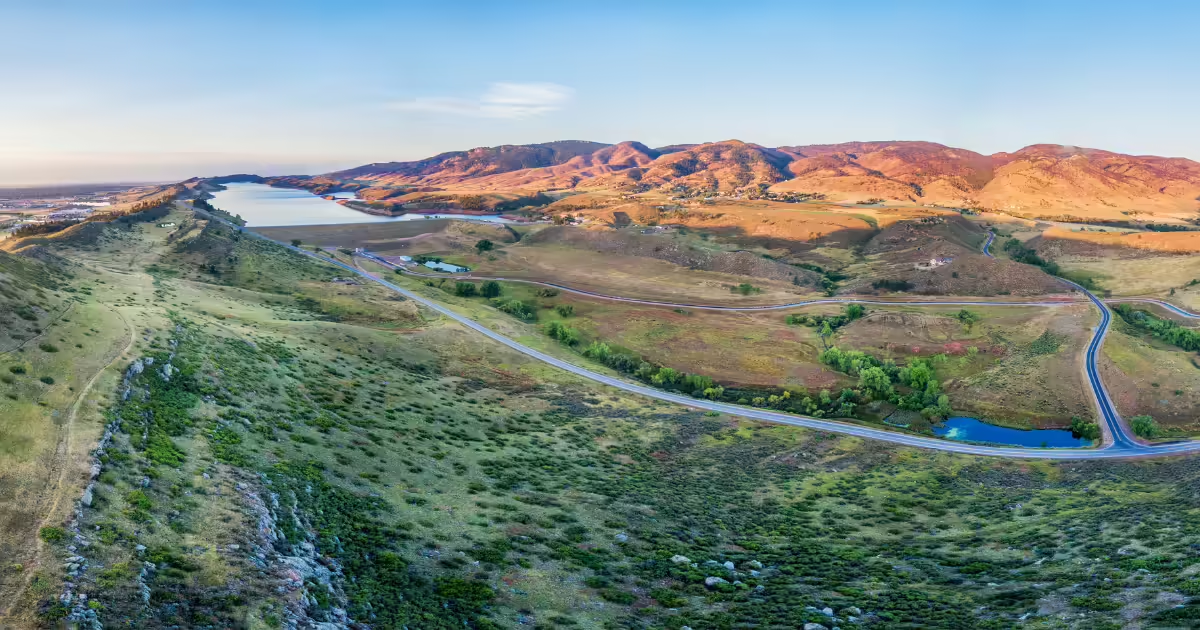In order to maintain our infrastructure, keep up with technological advances, adhere to regulations and expand our services to meet the growing demands of the Northern Colorado community, the Fort Collins-Loveland Water District (FCLWD) is constantly at work on a variety of construction projects.
These “capital projects,” as they’re called, help deliver clean, pure water across the District and are necessary for the continued operation of our district as well as future growth. They’re also part of our Capital Improvement Plan, which outlines our plans for infrastructure improvements and expansion in the coming decades.
Here, we’ll provide a quick update on the status of two critical capital projects, as well as the progress we expect to make on them in 2024. Additionally, we’ll shed some light on how capital projects function in the District and the governmental bodies, community groups and individuals we work with to ensure their smooth installation and maintenance. Ultimately, we don’t break ground on any projects without careful planning and local coordination—below, you’ll learn why that’s so important to our District.
The State of the FCLWD’s Capital Projects in 2024
FCLWD has two major capital projects in the works for 2024. They’re in different areas of the District and in various stages of completeness. We keep our website updated so you can get a deeper look into our current progress and plans but, essentially, we’re working on the following.
The Zone 5 Project
The Zone 5 project is a major infrastructure overhaul meant to increase the hydraulic capacity and system performance of FCLWD’s water delivery system. It will stretch approximately eight miles across the width of Fort Collins and replace the outdated and undersized pipes that currently supply the District’s taps.
We recently completed Phase One of the project with the installation of a 24-inch water line along Manhattan Avenue and Troutman Parkway. This first phase of the Zone 5 project was completed on time and within budget in December 2023, and the final landscaping and aesthetic touches are already underway.
Now, we’re entering Phase Two of the project. In this stage, we’ll install a 24-inch water line along Horsetooth Road from Manhattan Avenue to Taft Hill Road. The construction will begin in June with minor traffic delays and detours expected for the following critical events:
- Shields Street Bore in June and July
- Pleasant Valley Canal Bore in June
- Horsetooth Road at Manhattan Avenue pipe tie-in in July
- Excavation and Pipe Installation in the southern westbound lane from Manhattan Avenue to Shields Street from July to September
- Excavation and Pipe Laying in the northern eastbound lane from Shields Street to Taft Hill Road from September to December
Several future stages of the Zone 5 Project are currently being planned. Although it will take multiple years to complete, the Zone 5 Project will dramatically decrease our reliance on pump stations and other energy-intensive water delivery systems while simultaneously increasing flow and service capacity. The project is critical to continue to deliver reliable and affordable water to our customers.
The Western Backbone Project
The Western Backbone Project is a multi-phase pipe construction endeavor that will connect Overland Pump Station in western Fort Collins with Taft Pump Station via a 42-inch transmission line. This upgrade is necessary to replace the undersized transmission mains causing bottlenecks along the western edge of our service area.
In December of 2023, the first phase of the project was completed when half a mile of pipe was laid on time and within budget. Future sections of the pipeline are still in the planning and development stages and will be put in place in phases over the next several years.
We’re also entering Phase Two of this project. In this phase, we’ll install a 42-inch water line along Prospect Road/Cedarwood Drive and Overland Trail/Pleasant Valley Road. The construction will begin in July with traffic delays and detours expected on:
- Prospect and Cedarwood in July and August
- Overland and Pleasant Valley in August through December
Western Backbone will be completed in multiple phases over several years, additional future phases are still under design. When the project is complete, the District will be able to optimize the transmission of its Soldier Canyon Filter Plant source water to minimize the use of water purchased from the City of Fort Collins during peak usage periods. By increasing hydraulic capacity we’ll improve overall system performance to keep taps flowing with reliable, cost-effective water even when demand is high.
How the District Conducts Capital Projects
While we ultimately take responsibility for plotting out, digging, installing, and completing all construction projects, we’re anything but alone when it comes to their planning.
We convene closely with a variety of local interest groups—including governments, community coalitions, and individual landowners—when devising each capital project. Oftentimes, projects will stretch across multiple jurisdictions, meaning we’ll have to work alongside several local authorities to effectively upgrade and install infrastructure.
By scheduling and attending construction coordination meetings, we can:
- Plan with other teams – The FCLWD’s construction teams dig, lay pipe, and return the area to its former state of repair. In the process, however, we may need assistance or clearance from other construction and city workers. On any given project, we may work with street widening, stormwater, wastewater, other water providers, engineering, bridge replacement, electric, gas, broadband, new development construction, and street maintenance teams—so it’s essential that we all meet to discuss plans and coordinate our operations.
- Minimize collateral damage – Digging and laying pipes has the potential to uproot roads and interrupt utilities such as electricity. The last thing we want to do is make life harder for our community and cut up a just-paved road so, with foresight, we can take steps to avoid creating extra work and limit outages and road closures—such as by digging right before road crews were already planning to tear an area up.
- Prevent service outages – The District is committed to continually keeping our water flowing without interruption. Thanks to our proactive planning, the majority of our projects are completed without having to switch off service. If we have to suspend your supply for any period of time, however, we’ll be sure to hang a note on your door letting you know 24 hours before the shutoff.
We’re constantly balancing the pros and cons of affecting our community’s services and complying with new development legislation—such as Larimer County’s 1041 regulations—to optimize local water supplies and cause minimal disturbances.
New infrastructure is essential for the District’s future water needs, but roads and utilities are necessary today to keep our community functioning. Every day, we do our best to walk this tightrope between upcoming demand and current obligations to better serve our customers.
Learn More About the District’s Capital Projects
Capital projects and proper planning are so critical at the District that we have written about them extensively over the years in our blog, customer newsletters and on our Facebook page. To learn more about how we develop infrastructure plans and just how forward-thinking our projects, check out our blog from October 2023.
To all our customers and everyone in the Northern Colorado community, we want to thank you for your patience as we develop and improve our infrastructure. We’re working hard to meet the area’s future water demand. If you ever encounter a road closure or service shutdown due to our capital projects, rest easy knowing it will help ensure clean, pure water for generations to come.



